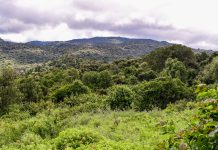Nice, France – June 16 (Swara)—The Third UN Ocean Conference (UNOC3) closed on June 13 with a resounding call for global action to safeguard the world’s oceans. Leaders unveiled sweeping commitments to expand marine protections, curb pollution, and secure financing for vulnerable coastal nations.
France and Costa Rica co-hosted the five-day summit, which brought together over 15,000 participants, including 60 heads of state and government, alongside scientists, activists, and private sector leaders. Organisers dubbed it a “watershed moment,” and the conference culminated in the Nice Ocean Action Plan—a two-part framework featuring a political declaration and more than 800 voluntary commitments from governments, NGOs, and international bodies.
Key Outcomes:
Marine Protection Pledges: France announced a €1 billion ($1,157,526,571) investment in ocean conservation, while French Polynesia committed to creating the world’s largest marine protected area (MPA), spanning five million square kilometres. Spain designated five new MPAs, and Germany pledged €100 million to clear underwater munitions in the Baltic and North Seas.
High Seas Treaty Momentum: Nineteen additional nations ratified the agreement on the conservation of Marine Biological Diversity of Areas Beyond National Jurisdiction (BBNJ Agreement)—a landmark 2023 treaty to protect biodiversity in international waters—bringing total ratifications to 50, just 10 short of the threshold for enactment.
Innovative Financing: Indonesia and the World Bank launched a “Coral Bond” to fund reef restoration, and New Zealand committed $52 million to bolster Pacific Ocean governance.
Coalition-Building: To combat underwater noise pollution, a 37-country alliance led by Panama and Canada formed the High Ambition Coalition for a Quiet Ocean.
Leadership Voices:
Li Junhua, the UN Under-Secretary-General for Economic and Social Affairs and the summit’s Secretary-General, hailed the “undeniable momentum” but stressed accountability: “The waves of change have formed. It is now our collective responsibility to propel them forward.”
France’s Special Envoy Olivier Poivre d’Arvor celebrated the BBNJ progress but critiqued the lack of US engagement, referencing President Donald Trump’s recent pro-deep-sea mining executive order: “The abyss is not for sale,” said d’Arvor.
Costa Rican Foreign Minister Arnoldo André-Tinoco urged faster financing: “Each commitment must be held accountable.”
Tensions and Omissions:
Small Island Developing States (SIDS) pushed for more substantial “loss and damage” language to address climate-driven harms, while Costa Rica and allies failed to secure a deep-sea mining moratorium in the final text.
Looking Ahead:
UN Ocean Envoy Peter Thomson called the summit a turning point, with eyes on the 2028 conference in Chile and South Korea. “From the desert of 2015 to today’s engagement—we’re seeing a surge,” he said, emphasising the need to meet the *30×30* biodiversity target.
As the curtain fell on UNOC3, the Mediterranean’s horizon mirrored the challenge ahead: vast, urgent, and demanding unity. “The real test,” Li concluded, “is not what we said here, but what we do next.”
Source: UN News























